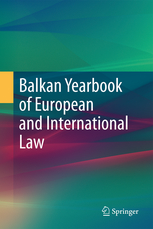Views
Nothing Found
Sorry, no posts matched your criteria
News
Dr Jan De Bruyne presents on ‘Regulating Artificial Intelligence in the European Union: Legal and Ethical Aspects’.
Dr Jan De Bruyne presented a paper at the Research Seminar Series at the School of Law, the University of Queensland, Australia discussing ‘Regulating Artificial Intelligence in the European Union: Legal and Ethical Aspects’ on 17 April 2020.
Artificial intelligence (AI) has become an area of strategic importance and a key driver of economic development. It has many benefits and can bring solutions to several societal challenges. At the same time, however, legal and ethical challenges remain and have to be carefully addressed. It is, therefore, not surprising that the regulation of AI is probably one of the most debated legal topics in the European Union (EU) and several of its Member States. This debate has only been strengthened with the recent European Commission’s White Paper on Artificial Intelligence – A European approach to excellence and trust.
Some argue that the law will need a fundamental make-over to deal with the reality of AI. The question that arises from a legal point of view is thus whether the existing longstanding legal principles are compatible with these technological evolutions or, instead, new legislation will need to be adopted. After a more general overview of the existing legal and ethical framework on AI in the European Union, I will proceed with an analysis of the situation for damage caused by AI systems such as autonomous vehicles to find an answer to that question. The analysis uncovers some difficulties in the application of traditional tort law principles. Reliance on a fault-based liability regime, for instance, will become uncertain in the context of autonomous vehicles. Liability in traffic-related matters will, therefore, evolve from a fault-based mechanism towards forms of strict liability. Particular attention is thereby given to the application of the EU Product Liability Directive. It will eventually be assessed who should be held liable for the damage caused by self-driving cars and other AI systems by an extension (de lege ferenda).
Details of the presentation may be found at: https://law.uq.edu.au/event/session/13582
Call for papers: Balkan Yearbook of European and International Law
Your articles on private (and public) aspects of European and International Law may now be submitted for publication in Balkan Yearbook of European and International Law. The BYEIL also welcomes comments, book reviews and notes on recent case law.
The currently open call for papers welcomes submissions falling within the above description, as well as ones related to the CISG marking the 40th anniversary of the convention. The call, with the contact details, is available BYEIL call for papers 2020.
Useful reading in times of corona and just released: The Guide to Good Practice on the Use of Video-Link under the HCCH 1970 Evidence Convention
Yesterday the Hague Conference on Private International Law (HCCH) announced the publication of the Guide to Good Practice on the Use of Video-Link under the 1970 Evidence Convention. It is available in both English and French.
Needless to say that this publication comes in very handy in times of COVID-19 as borders are closed and travel is hampered. Hopefully, it will encourage Contracting States and everyone involved in cross-border litigation to make further use of videoconference in the taking of evidence abroad.
See our previous post here for some quick thoughts on the Guide. And in this regard, see pages 46 to 49 of the Guide. See also its Glossary; I include two main concepts below:
Direct taking of evidence
“The procedure of taking of evidence whereby the authority in the Requesting State before which proceedings are pending conducts the witness / expert examination directly.”
Indirect taking of evidence
“The procedure of taking of evidence whereby an authority in the Requested State in whose territory the witness / expert is located conducts the witness / expert examination.”
It is the direct taking of evidence that video-link is usually meant to facilitate but of course it can also assist in the indirect taking of evidence (e.g. the parties and representatives may be present by video-link).
The HCCH news item is available here.



